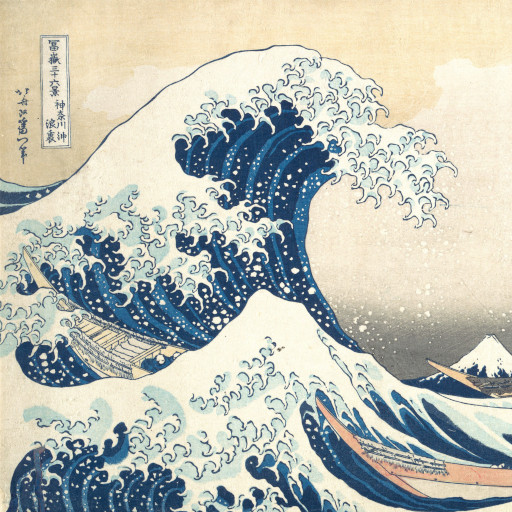- cross-posted to:
- worldnews@lemmy.ml
- news@beehaw.org
- cross-posted to:
- worldnews@lemmy.ml
- news@beehaw.org
I’d make a strong argument that one Diet Coke a day is still healthier even if it’s carcinogenic vs one regular coke everyday. Sugar is that bad for you.
Also the concentration of aspartame in diet coke is way less than the amount of sugar in regular Coke
Neither Coke nor Diet Coke are nutritious. Whether one or the other is a risk is specific to a person, and aspartame as well as other sweeteners aren’t fully understood in terms of risk.
I think these kind of simplistic statements serve to stoke fears around food than actually help people understand them. Added / excess sugar is associated to health risks but ultimately people need to understand their own health as individuals.
Here’s a Healthline article (by no means an authority but still fairly informative) to help expand.
20 diet cokes a day is healthier* than 1 regular coke a day. Sugary drinks are that bad for you.
*ignoring the possible bad effects of drinking 20 cans of any carbonated water.
Bad in what respect?
Sugar is incredibly addictive, non-nutritious yet high in caloric content, unfilling, causes highs and crashes reminiscent of drugs, and overuse of sugar in modern food is a major promoter of obesity. As with all types of food, sugar is fine in moderation. I consume plenty of sugar. However, if you rely on it too much for your daily calories then you won’t get enough of any other macronutrients such as fat, protein, and fiber, and you’ll get almost no micronutrients like vitamins. Sugar is also converted to energy incredibly quickly by the body, which is a good thing in many cases (like when you need a quick burst of energy at breakfast time, provided you balance it out with things like protein), but also leads you to get hungry quickly after eating it and eat some more, causing you to get fat, and wasting your money. When your body gets used to large amounts of sugar it also starts to crave it like a drug user craves drugs.
Oh ya, it’s also in just about everything these days, especially in America. It’s not even the tasty kind that comes from sugarcane, they just use corn syrup. Thank you, corn lobby!
Not to mention the horrendous inflammation it causes too
The sugar in a pineapple isn’t nutritious either. It’s energy, which you require.
Yes, it is energy. And you do require it. I said that. It’s the fact that we eat too much of it and not enough of everything else that’s the problem. Cut sugar from your diet for a few weeks and then eat it in moderation alongside other things, and your health and quality of life will skyrocket. You wouldn’t live off of pineapples, would you?
love me some pineapple juice
I tend to avoid sugar but I figure sugar directly from a fruit is acceptable (within moderation of course)
It’s worth noting that we’ve also ruined many fruits through breeding and generic engineering so that they have a massively increased amount of sugar. They won’t be as ‘healthy’ as wild varieties, but hot damn do they taste good.
Sugar itself is not particularly harmful. Most foods we eat naturally contains sugar.
What’s really harmful are sugary drinks, such as regular soda, fruit juices, and sweet coffee based drinks.
The problem comes from how quickly the sugar is absorbed into the blood stream. Regular foods containing sugar such as fruits release the sugar slowly as they are broken down and digested. Sugary drinks however are pure dissolved sugar which is absorbed incredibly rapidly.
It causes a rapid blood glucose spike which is followed by an insulin spike. Having that as a regular occurance is devastating to your body, and can lead to some terrible conditions like non-alcoholic fatty liver disease and diabetes.
I see someone else who’s part of the keto crew. Sugar (and carbs) are goddamn awful for people and it is infuriating to see how so many people still focus on the amount of fat in foods, which to a large degree is meaningless. Sugar is the killer.
Sugar (and carbs) are not awful for people. Anything is awful in too large a quantity, including fat. Fat is not meaningless. You cannot speak in absolutes, or near absolutes, when it comes to nutrition.
I mean in this specific case nutritionally soda is just bad for you. We’re talking about beverages that have 20 to 40 grams of sugar in them
The thread is already full of ketobros
It’s in more food products than just coke
I think that’s the general conclusion. Diet coke is better than regular coke and may satisfy a sweet tooth. If you can handle stevia that could be even better than aspartame - its slightly more potent and afaik not absorbed into the body at all. But like drinking water is probably even better in most cases, it just doesn’t satisfy cravings for people that have them.
Thanks, corporate! I wouldn’t know how to think without you!
“Look, it may give you cancer, but honestly at this point what won’t. And at least the cancer has a chance to take you out before the catastrophic collapse”
With the amount of aspartame I drink, I’d like the process to hurry up already, please.
You’re going to need to eat it by a spoonful to even have a chance of it causing cancer.
Don’t tell me how much coke to drink
Nine to fourteen cans of cola a day is the limit. Eek, I’ve probably done that when I was a young programmer! Hope it doesn’t catch up to me. :(
The WHO said aspartame is safe to consume within a daily limit of 40 milligrams per kilogram of a person’s body weight.
An adult weighing 70 kilograms or 154 pounds would have to drink more than nine to 14 cans of aspartame-containing soda daily to exceed the limit and potentially face health risks.
Holy shit you weren’t kidding. And here I was worried that my 2-3 cans a month might be catching up to me!
You’d basically die from water poisoning before the aspertame would get you.
well that settles it, I am going to treat myself without worrying anymore.
deleted by creator
I drink about a can per day and I was so worried. lol
Maybe if you are very, very, very little.
What about all the other foods and drinks that contain it?
I’ve only ever seen aspartame in the ingredient list of diet sodas, and I often check ingredient lists.
It’s also used in gum, not sure how much though.
I feel like you’d give yourself the gum chewer’s equivalent of wanker’s cramp before you even got halfway to the daily limit.
Compared to diet soda, it should be very little. Otherwise it would be extremely sweet.
Iced tea, cordials, alcoholic beverages, gelatin/jelly, tabletop sweeteners/coffee/tea, protein shakes and milk drinks, condiments, gums, dessert foods. There is no doubt more I’m missing
Read this article and decide if you think the risk is actually that serious. The WHO is almost certainly blowing this way out of proportion and overstating the risks.
You think Coca-Cola would let someone say they’ve been giving everyone cancer? He’ll no.
I know you didn’t even look at the article because it doesn’t rely on coca-cola’s word at all.
So, how much is that in liters ?
3.2 to 5 liters a day. Hope I did that calculation correctly.
Of the basis WHO is using here, most if not all longterm studies (the kind you’d want for assessing things like cancer risk) are based on observational evidence. That is, a study where the participants typically aren’t asked to do anything they don’t already normally do. For this topic, that means generally speaking the participants are going to be people that already normally drink low calorie sweetened beverages.
It doesn’t really seem like they’re accounting for the fact that this means that the participant candidates are going to skew towards people that are overweight, which is like the 2nd highest risk factor for cancer generally.
I can’t really make sense of their recommendation. The data required to recommend for or against just isn’t there. The totality of short term data is all very showing a very strong association between sweetened drinks and weight loss. Wish they’d just explain this stuff properly so we didn’t have to rely on the dumbass media to interpret advice meant for medical professionals
To be fair the vast majority of scientists will take other factors into account. If you thought of “this could also be because of that” then you can be sure that the scientists and the ones reviewing the publication also thought about it and addressed it. There are exceptions, sure, but don’t just assume everyone is bad at their job.
My assumption isn’t completely absent of context. From the article: “The FDA reviewed the the same evidence as IARC in 2021 and identified significant flaws in the studies, the spokesperson said.”
But that’s not really what I meant. The issue I have is about language and presentation of info, not research methodology. Most people aren’t going to read WHO’s ~100 pages of recommendations on aspartame. We get CNBC’s interpretation, and some clickbaity editor has left their stink on it.
“WHO says soda sweetener aspartame safe, but may cause cancer in extreme doses” is both a more pertinent headline for countries in the west and from what I can tell, closer to being in alignment with what the WHO are actually saying.
You’re right on the spot with media reporting on this.
This is absurdly stupid. I’m sorry… But it is. The naivety involved in this comment is staggeringly rough.
Even if we pretend what you’re saying is true, it suggests that scientists are not prone to error or tunnel vision. What do you believe scientists are funded by? Knowledge? No… Not in this shitty world… They’re funded by money here, something Coke has plenty of.
It doesn’t really seem like they’re accounting for the fact that this means that the participant candidates are going to skew towards people that are overweight, which is like the 2nd highest risk factor for cancer generally.
You say this based on what exactly? Because that’s a trivial thing to correct for in an observational study.
I’m talking about the WHO’s recommendations in their capacity as an advisory body on public health following their analysis of IARC research, not the research itself. Many of the studies do make substantial corrections for the participant candidates. I don’t think that’s necessarily translated through to the recommendations, which should be given in the context of existing public health outcomes.
The WHO agrees that two thirds of adults in countries like USA and Aus are overweight. They agree that obesity is an extreme risk factor for cancer. They agree that non-nutritive sweeteners confer at least a short term benefit to weight loss. They agree that the cancer risk associated with those products is comparatively insignificant. So they should be careful not to potentially mislead media and the the public about that specific causal relationship. It has directly resulted in the misleading headline of this post.
Do you have data suggesting overweight people are more likely to drink sugar free sodas? You could just as easily intuit that health conscious folks drink less calories.
I didn’t, but I just found a few papers showing a relationship between awareness/use of nutrition claims/labels and obesity.
https://bmcpublichealth.biomedcentral.com/articles/10.1186/s12889-019-7622-3
https://www.sciencedirect.com/science/article/abs/pii/S0306919214001328?via%3Dihub
That second one sums up my logic pretty well:
The analysis revealed that people with excess weight display a high level of interest in nutrition claims, namely, short and immediately recognised messages. Conversely, obese individuals assign less importance to marketing attributes (price, brand, and flavour) compared with normal weight consumers.
Generally people that engage with products marketed as “diet” options are more likely to be people that want to improve their diet. In turn those people are more likely to be overweight. And people that are not overweight are more likely to select based on other product attributes.
Edit: The use of low-calorie sweeteners is associated with self-reported prior intent to lose weight in a representative sample of US adults - https://www.nature.com/articles/nutd20169
In cross-sectional analyses, the expected relation between higher BMI and LCS [low calorie sweetener] use was observed, after adjusting for smoking and sociodemographic variables. The relation was significant for the entire population and separately for men and women (see Table 1). The relation between obesity (BMI ⩾30 kg m−2) and LCS consumption was significant for LCS beverages, tabletop LCS and LCS foods (see Figure 1a). Individuals consuming two or more types of LCSs were more likely to be obese than individuals consuming none (42.7% vs 28.4%) and were more likely to have class III obesity (7.3% vs 4.2%).
“People who are dieting buy products labeled as diet” is obvious and needs no validation. But we live in a time where people will doubt “water is wet” and you need the research to prove it.
But then couldn’t you just as easily say rather than ‘people use diet products because they’re overweight’, that ‘people are overweight because they use diet products’ ? I’ve certainly heard both propositions before. “Never seen a skinny person drinking Diet Coke”
I would disagree. We should attempt to validate all such claims. Personally, I’m pretty skinny. In fact, I’d like to gain some weight. I’m also reasonably health conscious. I don’t drink all that much soda. When I do though, it’s Coke Zero (or equivalent), not regular coke. I recognize that we have too much sugar in our diet in modern life anyway, so I cut it out where I can. However, health consciousness likely leads to people consuming fewer sodas in general (and more water), so the percentage of purchased product will likely skew towards people with a soda addiction/fixation who are searching for an alternative that doesn’t require them to change much in their lifestyle.
Life has too many variables to make assumptions like that. We should seek to varify claims instead of assuming our first thought must be true.
Don’t worry you’re only drinking the recommended amount of carcinogens.
Everything is a carcinogen pretty much though.
Eat meat? Better boil or steam everything because any bit of char on meat is a carcinogen. Especially avoid all red meat and sandwiches in general.
Don’t heat potatoes or a lot of other vegetables too high either. They can produce acrylamide, another carcinogen that’s also found in tobacco smoke.
Never drink alcohol either because it’s a carcinogen.
Don’t fry anything. Causes cancer.
Peanuts and peanut butter are laced with aflatoxins that are carcinogenic.
Literally everyone gets cancer several times in life. Most of the time your body kills it off. It’s only when that fails that we catch it. The longer we live and the more we minimize other factors, the bigger cancer will become as a cause of death.
Life is too short to worry about that shit. Cut out most of the processed crap and cook and eat whole unprocessed foods mostly and you’ll be fine.
Life is too short to worry about that shit. Cut out most of the processed crap and cook and eat whole unprocessed foods mostly and you’ll be fine.
Depends on what kind of processing it’s being put through. I wouldn’t drink unpasteurized milk, that’s for sure.
Eh if you know the source well, raw milk is delicious. I sure as fuck wouldn’t trust some corporation with it though. I know local farmers though and get raw milk from trusted sources. Way better than even the high end grocery store stuff.
I get it at the farmer’s market. It is delicious!
As long as you don’t try and serve it to me, all power to you.
It doesn’t matter how trusted the source is, raw milk could still be carrying pathogens. Having recovered from salmonella earlier this year (I didn’t eat anything for a month), I don’t recommend taking the chance.
deleted by creator
Which is good. We’ve had a general sense of aspartames’ carcinogenicity for some time, but we really do need to dial in the doses of understanding. I have Mexican friends who do not drink liquid other than soda and alcohol (let’s ignore the last word for the sake of this conversation) and it’s the same for many of their friends as well.
Anything can kill you. Water. Oxygen. Green beans. The dose makes the poison.
So it’s about time we came to a concensus and quantified the risk.
This has been a thing since forever. I remember there being a big doobadoo about the shit in Diet Coke back in the 90’s. They showed it gave mice cancer.
It used to be called NutraSweet.
The thing is that the study with the mice was seriously flawed. There’s been more research since then, which is why we’re getting this announcement now (even though the announcement itself is little more than “oh hey there might be something to this? We definitely need more research before we can know for sure.”)
Yeah, I thought this sounded pretty familiar. I thought it was like a known thing.
I don’t know. Who would say that?
I already told you who.
So who would say that?
That’s what I said!
But who did say that?
Who did!
I don’t know, that’s what I’m asking you
I already said who!
This thread is fucked with astroturfing. Welcome to Lemmy, everyone! It’s easier to do this shit here… It’s kind of a massive fucking problem.
Who’s astroturfing, exactly?
It is a term used by people that think that everything is a conspiracy theory. Most likely OC meant that comments here are payed shills of soft drinks companies trying to downplayed the significance of these news.
In reality, it’s full of reasonable people that don’t immediately jump on the boogieman bandwagon but simply critically look at the announcement and provide context for it so people don’t immediately stop consuming sugar-free consumables in favour of sugared ones as we know the latter to be deadly.
It’s weird to think someone would only disagree with you if they were trying to drum up fake support in support of a company.
Aspartame gives me mad headaches anyway.
Aspartame insulted my mother and kicked my dog
Aspartame is nasty anyway
I don’t understand why anyone would pick Diet Coke over Coke Zero which tastes infinitely better.
Isn’t that also loaded with aspartame?
Zero also has acesulfame potassium, so not sure if Diet has more aspartame or what exactly.
Just a little, light cancer.
I drink a lot of Coke Zero and mainly went on it because sugar taxes were making regular Coca Cola far more expensive.
The notion that big soda corporations are giving us cancer is quite concerning.
Let’s be clear, sugary sodas are causing health problems right now.
Exactly this. I hate to say it but candy and sodas need to be taxed like cigarettes. The obesity crisis is very real. Over 70% of adults in the United States are overweight or obese.
Taxes don’t really make people quit. It just makes them more poor. The best it does is over time people stop trying things long enough to get addicted.
The almost certainly aren’t. Typically the quantities used in these tests are absurd if scaled up to a human. It also very well may not have the same effect in a human.
As long as you aren’t shoveling aspertame into your mouth, it’s almost certainly less than the equivalent amount they tested on these mice.
Quote from the article: “An adult weighing 70 kilograms or 154 pounds would have to drink more than nine to 14 cans of aspartame-containing soda such as Diet Coke daily to exceed the limit and potentially face health risks”
Aka, you’re fine.
Is there a reason a lot of people seem so bent on drinking fountain drinks constantly? Is it an anxiety thing?
addiction
I don’t understand how anyone can stand it, or any artificial sweetener. Every single one tastes like some chemical, or soapy metal, bitter, whatever. Even the so-called natural ones, stevia, cloying and just weird aftertastes.
I don’t drink soda anyway. It’s really odd to me how much people drink it, corrosive nasty stuff.
Put some rum in a coke, ok I’m good with one. But it’s just far too sweet.
Baffling.
just an FYI, the rum is probably much more carcinogenic. WHO has had a statement on that for some time https://www.who.int/europe/news/item/04-01-2023-no-level-of-alcohol-consumption-is-safe-for-our-health
I heard that the WHO is pushing this agenda in order to replace aspartame in your diet coke with vaccines. Wake up beeple!
Does reading this comment count as me doing my own research?


















